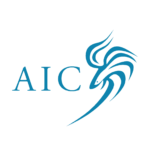Guide to Selective Finance Clubs at the University of Michigan Ross
The University of Michigan offers numerous supportive and educational clubs surrounding the competitive fields in finance. Since you’re reading this, you’re likely aware that these on-campus pre-professional student organizations can be extremely selective of their membership and have a strict recruiting process. The process typically starts with Festifall, which occurs before classes begin. Then within a few days of classes starting in September, there will be a whirlwind of activity, including the BBA Meet the Clubs event, club-specific networking events, coffee chats, and interviews.
This page is designed to give you a lay of the land and prepare you for what’s to come during your first few weeks in Ann Arbor. Due to high interest and high candidate quality at the University of Michigan, incoming college freshmen need to start scoping what clubs they are interested in, and how they can improve their chances of admittance. We will discuss this process and the options presented to students.
Table of Contents
Open clubs on campus
Clubs on campus can generally be grouped into two buckets: open and selective. Open clubs don’t have limits on members and serve a more general education purpose. These organizations feature guest speaker events, industry-specific workshops, case competitions, and social events. Joining one or several open clubs at the start of your freshman year can help you get acquainted with the culture on campus, build friendships, and build your business acumen in a less competitive environment. If you get into a selective club you may choose not to pursue these clubs, but if you do not gain admittance into any selective clubs, these open clubs can serve as great resources to help you improve your candidacy and re-apply.
See the table below for a list of open clubs and some relevant information on them. These clubs are listed in alphabetical order.
Banking at Michigan helps students navigate the recruitment process while making it more accessible and inclusive. General members get access to public resources (e.g. blog, slide decks, external/internal content), recruitment and interview preparation material (sent out via newsletter), events (town halls, workshops, office hours), and mentors (upperclassmen who have successfully navigated through the process). There is a selective application process for Analysts. Analysts contribute blog posts, teach corporate finance and valuation courses, and perform other tasks.
BBA Finance Club is intended for undergraduate BBA students with career interests in finance-related industries. The Finance Club functions as a resource for students aspiring to begin successful careers in finance.
Michigan Business Group (MBGroup) is dedicated to introducing members of the University of Michigan community to the world of business: consulting, finance, accounting, marketing, entrepreneurship, and more.
Michigan Business Women (MBW) is dedicated to providing women with the education, resources, and mentorship to be successful.
Selective clubs on campus
Selective clubs typically feature a multi-step recruitment and selection process. These clubs typically have between 50-150 members with roughly 25% of those members gaining entry annually, provided most new members start freshman year and continue membership through their senior year. These clubs typically provide workshops covering a range of topics, access to an alumni network, and private recruiting events. Your placement at a top firm won’t necessarily be guaranteed if you join one of these top clubs, however, membership will provide you with a playbook that will significantly improve your chances.
See the table below for a list of selective clubs and some relevant information on them. These clubs are listed in alphabetical order.
Alternative Investments Club (AIC) is an investment fund where members become well-versed in alternative asset classes, financial markets, and valuation methods. Beyond the club portfolio, members participate in semester-long hedge fund, private equity LBO, and real estate competitions and have opportunities for professional development through its mentorship programs, speaker series, resume review workshops, and interview preparation workshops.
Apex Trading Group (ATG) is a portfolio management club that offers a series of semester-long professional development classes, which material of financial accounting, résumé workshops, networking practice, financial modeling, and more.
Global Investments Committee (GIC) is an organization focusing on the global economy and financial markets through an actively-managed investment portfolio. GIC provides a hands-on learning experience to members through valuation workshops, speaker series’, trading simulations, and categorized pitch teams. GIC also utilizes its network to organize private recruiting events with companies in the financial services industry.
Michigan Interactive Investments (MII) founded in 1998, manages a $25k multi-asset portfolio with around 60 selected members. The organization hosts the Engage Undergraduate Investment Conference (Engage UIC) every fall, which brings together students from around the world with legendary investors, alumni, and recruiters. MII also helps prepare its members to take advantage of unparalleled recruiting opportunities through private recruiting events, alumni mentors in the industry, and an annual NYC trek.
Michigan Investment Banking Club (MIBC) focuses on helping its members secure competitive internships or full-time analyst positions in investment banking. The organization provides an educational lecture series provided by senior members that covers topics such as financial accounting, corporate finance and valuation, and financial modeling. It also provides career guidance, which includes cover letter and resume review, structured interview prep, and mentorship. MIBC also has a year-round investment banking internship program for select members that provides real-world experience throughout the school year.
Michigan Investments Group (MIG) was founded in September 2015 by three engineers who dreamed of creating a club to explore the intersection between finance and technology. MIG incorporates two branches: the coding team and the investing team. Members learn about fundamental and algorithm-based investing strategies, respectively
Michigan Private Equity and Venture Capital (PEVC) founded in 2018, offers students a unique opportunity to immerse themselves in the private investing industry. MPEVC members engage in a series of technical teach-ins, guest presentations, and consulting engagements to develop skills for success in the field
Michigan Stocks & Bonds Organization (MSBO) manages a portfolio and typically has around 60 members. The organization’s focus is on educating its members, sharpening their professional development skills, and providing networking opportunities. MSBO members are placed on desks where they pitch sector-specific investment ideas.
TAMID is a consulting and investment club that fosters professional development by connecting students to Israel’s economy. TAMID at Michigan runs its own educational program, student-managed equity research portfolio, and consulting practice serving high-tech Israeli start-ups. TAMID runs a summer fellowship program in Tel Aviv where selected members can intern at start-ups or multinational companies such as Google and Deloitte.
Theta Capital is a newly founded student organization focused on equity research.
Upround Ventures is a student-run venture capital organization that intends to source, fund, and accelerate growth for startups founded by University of Michigan students, alumni, and others within their network. The organization provides internships through its partners, hosts panels, leads treks to NYC and San Francisco, and facilitates a mentorship program for upperclassmen and new members.
Victors Value Investments (VVI) is an investment fund with over $10k in assets under management and was founded in 2017. VVI also hosts an extensive education series for new members, consisting of weekly lectures and discussions. Content covered includes the basics of investing, financial accounting, and valuation techniques.
Wolverine Capital Investments (WCI) manages a portfolio with a focus on buy-side investment strategies. The organization provides weekly discussions on market news and enables members to learn a wide range of fundamental and technical analysis techniques. WCI also provides resources to help members develop their resumes, network, and obtain professional headshots
What dose the recruitment process look like?
The recruitment season for selective clubs on campus unofficially starts with Festifall, which typically occurs several days before classes begin. Festifall is the largest student organization fair on campus and is a great way to connect with members of these clubs prior to official recruitment beginning. Recruitment officially begins with the BBA Meet the Clubs event, which typically occurs within several days of classes beginning in September. After that organizations will hold informational sessions, coffee chats, and networking events. Following this, prospective members will be required to submit club applications within a few weeks. Most application processes consist of a handful of general questions, one or several essay questions, and a resume upload.
Candidates will then typically participate in one or several rounds of interviews. By late September, most clubs will have completed their selection process and all offers will have been extended. A similar process will take place in January.
What are the selective clubs looking for?
Selective clubs are looking for a number of characteristics as they undergo their recruitment and selection processes. One of the characteristics these clubs are looking for is the ability to speak intelligently about the financial markets and particular investment ideas. The key here is to follow the financial markets and be up to date on particular investment ideas that you feel strongly about. The clubs will be able to tell the difference between you casually following a few securities and having done extensive research on them.
These clubs are also looking for candidates with unique interests and passions. Perhaps you started a small business or charity, rose to the top echelons of a niche sport, were very involved in a unique organization, grew up in a unique place or environment, are an accomplished musician or actor, or are extremely knowledgeable or passionate about a particular topic. Be sure to bring these sorts of interests and passions up throughout the recruitment process in a tactful way. They can be finance-related, however not necessarily. In fact, if your only interests lie with finance-related topics that can be a negative thing. These clubs are typically looking for well-rounded candidates.
Clubs are also looking for motivation. What did you do to pursue your passions or goals? These clubs will view demonstrations of motivation with your past actions is a strong indicator for how hard you will work once gaining admittance. Members of selective clubs on campus have to work very hard, ascend difficult learning curves, and go through all the challenging steps of networking, interviewing, and ultimately winning selective finance positions. The clubs will invest significant time and energy into you and they want to know you are going to take the initiative to go up the learning curve through their member process.
How to prepare for the recruitment process
Provided you only have a few months to prepare between the time you graduate high school and when you step foot on campus, it is important that you educate yourself on the process and begin to prepare as soon as possible. Here are some general tips and recommendations on the recruitment process and how to prepare.
Educate yourself on the clubs
Learn about all the selective clubs on campus and narrow it down to the ones you are most interested in. Are you interested in being a part of a club that has an investment fund? The answer to this question alone will narrow your options down. Are you focused on investment banking or more open to other areas of finance? There tend to be a good amount of similarities between the clubs on campus, but there are also some noticeable distinctions between the clubs as well. You’ll want to make sure that you do your research and be able to demonstrate genuine, authentic reasons for why you want to join particular clubs while networking and interviewing with their members. You will also want to be thoughtful with how many you focus on and apply to. If you apply to 100% of the clubs, it’s very likely your application will come off as unauthentic, making it easy for that club to pass on your application. Additionally, it’s almost impossible to fully network and gain traction at 100% of the clubs, so if you focus on all of them you may end up getting into none of them. Alternatively, if you just focus on one club, you are putting all your eggs in one basket. There are a lot of very highly qualified candidates and the difference between candidates that make it to final rounds can be minimal. It is generally a good rule of thumb to apply to 3-5 clubs.
Be professional
You should make sure that you are professionally groomed and dressed respectfully. These organizations invest a lot of time and energy into their members, so they want to be assured candidates are going to represent themselves and the club well. Also, clubs will typically post the dress code required for each event, so be sure to review that and make adjustments to your attire before attending events. Sometimes dress attire isn’t posted, and if that’s the case it can’t hurt to ask a member. Your attire and professionalism through the recruitment process will be seen as an indicator of your dedication to growing as a finance professional. You’ll also want to behave professionally. Behaviors that could really hurt your chances for membership include acting arrogant, acting rigid or stiff, and making fun of or being rude to club members or other applicants.
Be yourself
Students that go through the networking and interview process often feel like they need to focus on business and finance topics exclusively in order to be professional. While you should be ready to be professional and discuss finance-related topics, that doesn’t mean you should hide your personality. Students are sometimes rigid and end up hurting themselves in the process because they aren’t being themselves. Be sure to show your interests and passions throughout the process, while also maintaining your professionalism and ability to discuss finance-related topics.
Have a stock pitch ready
One of the questions in applications for most clubs will be a qualitative stock pitch, where you’ll have to explain an investment opportunity that you’re following and justify the potential of the investment. If selected to continue in the interview process, you will most likely be asked follow up questions about your investment idea. Some clubs will ask for a second investment idea as well, so it’s important you are very knowledgeable about several investment ideas and are able to have thoughtful, in-depth conversations about them.
Be up to date on current events
You should be able to speak intelligently about a number of current events and stories. This should be in general about the world and topics you follow, as well as business and finance related topics. You’ll want to avoid overly political or controversial topics, and be ready to discuss a wide range of current events.
Understand your career options
It’s important that you have a general idea of the different career options that exist and what paths might be of interest to you and why. The key thing here is to demonstrate that you have done some initial research and have some thoughtful views on some career paths you may be interested in going into your freshman year. If you know exactly what career path you want to pursue, that’s great. But you better be prepared to have some really good reasons as to why you’ve chosen that particular career path.
Be able to back things up
As you go through the recruiting process, both while networking and in interviews, be prepared to back anything you say up. If you mention you have a particular passion, you will get asked probing questions about it. Members of these organizations will be able to tell the difference between a casual interest and a true passion where you have dedicated significant time and energy. Another good example is articulating your career interests. If you are asked what career path you want to go into and you emphatically say investment banking, you will likely get asked to dig deeper and explain why. If the club member you’re speaking with asks to tell them more and you can’t provide an acceptable answer, you likely won’t make it much further in the recruitment process. If you aren’t sure about what career path you’d like to pursue, that’s ok, as long as you’re authentic and can demonstrate you’ve done some basic research. If you aren’t sure about something and you act overly confident and try to fake your way through, you could end up getting dinged.
Technical knowledge and skills
It is critical to start building your business and finance skill set prior to arriving at the University of Michigan. In order to differentiate yourself from fellow applicants, an up-to-date understanding of business principles, current economic trends, and finance news is strongly recommended. On top of that, having completed technical training and earned certifications like the Adventis FMC Program, show initiative and skill. Accomplishments like this will help make your resume stand out from the crowd.
How Adventis helps you to stand out
Earning a financial modeling certification prior to or during your freshman year at the University of Michigan provides you with the ability to demonstrate you have some of the qualities these selective clubs are looking for and enable you to be better versed when discussing financial concepts. It shows you have the motivation required to be a successful member of a selective club on campus. It shows you took the initiative to begin building your skills and learn what it takes to win competitive finance positions. Having the practical, advanced modeling skills that are required of entry-level finance professionals is a fantastic way to elevate yourself above your peers and impress club leaders.
You can earn this certification through our Adventis FMC program. It’s an online program that offers all the tools you need to learn financial modeling online. However, at the University of Michigan, we also offer an in-person bootcamp component, which allows students to study the videos online and come to one of our boot camps for in-person instruction if they choose to. Either way, our program is designed to choose your own adventure, and pick whatever format works best for you and your schedule.
Here is why our program is unique:
Comprehensive and self-paced: This program offers 35 videos and 8 hours of instruction, giving you the opportunity to go at your own pace and master the technical skills needed for success in finance. You can also take advantage of our in-campus immersive bootcamps and learn these concepts in real life.
Personalized feedback: Enrollees receive in-depth, extensive feedback on their submitted financial models to help them understand and internalize key concepts.
Skill set mastery: Through case studies and practice building financial models, this program will teach you how to build financial models from scratch, including three-statement, valuation, and LBO models.
Long-term access: With enrollment, you will have access to the program’s instructional videos for 2 years, allowing you to revisit the material as needed.
No prior knowledge required: This program is designed for all skill levels, so no prior knowledge of accounting or finance is required.
Affordable: With a discounted rate for students, this program is an affordable way to gain valuable technical skills in finance.
Industry-recognized certification: Upon completion of the program and exam, you will earn a Financial Modeling Certification, recognized by employers in the financial sector.
More about our In-person boot camps
Our boot camps are generally offered between January-April and Sept-November. These one-day workshops offer hands-on, in-person training based on the modules you have access to online 24/7. If you are interested in learning more about our next boot camp on your campus, contact us as info@adventiscg.com or head to our website to learn more.


















